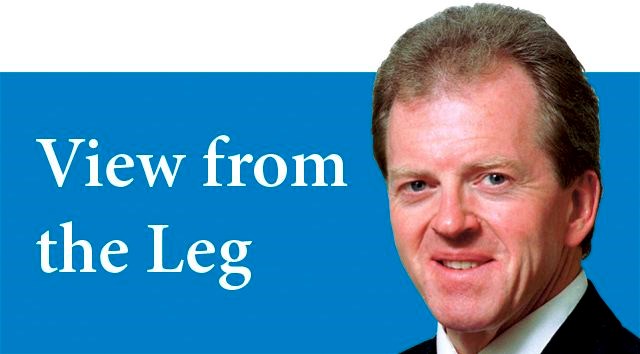On arriving at government house this week, B.C. Liberal MLA Sam Sullivan paused to banter briefly with the assembled members of the press gallery.
Cabinet appointment? No, nothing like that, he joshed. He'd just stopped by for the tour of the gardens.
Very funny for a minister-to-be (for however long).
Sullivan was one of five newcomers to the stopgap cabinet Premier Christy Clark appointed this week. Also the only member of the revised lineup that the Liberals made available to reporters in the post-shuffle media conference Monday.
Sullivan, the new minister for local government and transit, had a message to deliver, about lessons learned from a campaign where the B.C. Liberals had lost their majority by losing nine seats to the NDP in and around Metro Vancouver.
He was well positioned to deliver it, having seen his own margin of victory in Vancouver-False Creek trimmed from 3,200 votes in 2013 to just over 400 this time.
"The message we heard from the voters in the campaign - the message the premier heard, the message that I heard - we need to have a better working relationship and it is a priority for me, as a former mayor of Vancouver.
"We need to also show the mayors that we have a supportive and creative innovative partner," declared Sullivan in a departure from the tougher messaging from the Liberals toward local government in their recent term of government. "They need to know they've done tremendous work."
So?
"That's why if we earn the confidence of the house, we will move quickly to scrap the requirement to hold another regional referendum for funding transit."
The referendum provision was a plank in the 2013 platform and enforced by the Liberals in the subsequent term of government.
The requirement raised the ire of Metro Vancouver leaders when their already reluctant bid for a regional sales tax to pay for transit services was rejected in a mid-2015 referendum.
Despite the local backlash, Christy Clark stood by the requirement in the recent election campaign, per this comment during the first debate:
"We are still committed to making sure that if there is any new revenue source required from cities for TransLink we will go to a referendum on that."
As to what changed, Sullivan gave the obvious answer when the question was put to him on CBC's On the Coast by host Stephen Quinn.
"It's called an election," replied Sullivan. "We did incredibly well in the Interior, the North, but we just hollowed out in the urban areas of Vancouver.
"It was a very, very painful message for all of us. She (the premier) approached me, asked my opinion on where we went wrong and how we could repair this relationship both with the municipal governments and the voters of the urban areas.
"I said the most symbolic thing we could do, for a start, is get rid of this referendum requirement. And she totally - she took it and agreed and she asked me if I would lead an initiative to bring about that very object."
The premier's approach to Sullivan came in the midst of speculation that he had been identified by the NDP-Green alliance as a potential Speaker when they take office.
Sullivan flatly denied ever having been formally sounded out on that score. "On the Speaker's role, I can confirm that I have not been asked by the NDP or the Green party," he told Rob Shaw of The Vancouver Sun last week. "Were I to be asked, I would say 'no.'"
The notion that Sullivan might abandon the Liberals to prop up the NDP-Green alliance was based on the presumption of bad blood between him and Clark, arising out of having been defeated by her for the NPA nomination to run for mayor of Vancouver in 2005.
Which point, Sullivan addressed directly in the news conference Monday.
"Most people don't realize this but when we did go through the nomination process, right after that, she volunteered to be on my election committee and she intervened personally to help me and I don't think I would have become the mayor without her support.
"So I thought that was a very classy thing for her to do and it certainly gained a lot of my respect, which I continue to hold for her."
Still, during his rookie term as an MLA, he played a relatively minor role in the Clark government and was now preparing to assume a larger one. But for how long?
Sullivan downplayed the likelihood that he and his cabinet colleagues were "here for a good time, not a long time," as government house leader Mike de Jong put it, not entirely in jest, earlier this week.
"Now, if somebody stubs his toe and misses a meeting from the other side, we will form government," said Sullivan in an interview with host Simi Sara on CKNW this week.
"That's how unworkable this whole situation is."



